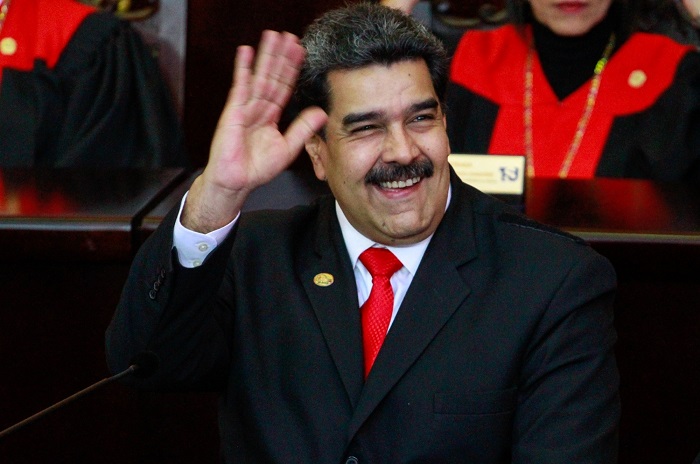Caracas, Russian military personnel landed on Sunday in Venezuela, capturing the attention of the political scene in the Latin American nation on a day on which President Nicolas Maduro and his challenger and self-proclaimed interim president Juan Guaido stayed silent and out of the public eye.
Opposition lawmaker Williams Davila told Efe that two Russian military aircraft with about 100 military personnel landed at Maiquetia airport, the country’s main air hub, which serves Caracas, in what he called a “serious” incident.
“It’s strange that a Russian mission’s coming here completely against the provisions established in the national Constitution. No (military) mission may arrive in Venezuela if it doesn’t have the authority of the National Assembly or Parliament,” Davila said in a telephone conversation with Efe.
The Venezuelan Parliament is controlled by the opposition and Guaido is the head of that body.
Davila said he had no knowledge of what the Russians were doing in the country, but he insisted that their presence constitutes a “violation of Venezuelan sovereignty.”
“And the Venezuelan military are keeping quiet,” he added.
On Sunday morning, several local media outlets reported the presence of two Russian-flagged military aircraft at Maiquetia, but only one of them now remains at the terminal.
The Venezuelan lawmaker said that Parliament will take into account this “penetration by foreign forces into Venezuela” during its next session and that he had sent a message to the Chamber’s defence committee asking that an investigation be launched.
The Venezuelan Information Ministry did not respond immediately to a request by EFE to clarify the motives for the visit by the Russian military personnel.
The Maduro regime and Russia last December said that they would begin “discussions on combined efforts” to raise the defence capabilities of the South American country to repel “possible attacks.”
At that time, a squadron of Russian military planes, including two Tu-160 strategic bombers capable of carrying nuclear weapons, participated in joint military exercises with Venezuelan forces.
Russia is one of Maduro’s biggest allies, backing him publicly against the challenge from Guaido, who on Jan. 23 proclaimed himself interim president and was shortly thereafter recognized by more than 50 nations, including the United States, as Venezuela’s legitimate leader.
On Sunday, both Maduro and Guaido maintained their silence and stayed out of the public eye, although it was made known that the latter on Saturday had held a video-conference with leaders of the Caribbean Community (Caricom).
In a statement released on Sunday, the Caribbean bloc said that the meeting came after the decision by the organisation to help facilitate a peaceful solution to Venezuela’s ongoing political, economic and social crisis.
Some of those participating in the video-conference were Jamaican Foreign Minister Kamina Johnson Smith, her Trinidad and Tobago counterpart, Dennis Moses, Caricom General Secretary Irwin LaRocque and St. Kitts and Nevis Foreign Minister Mark Brantley.
In their statement, the participants called the video-conference with Guaido a significant first step and said that the meeting served to give them a better understanding of Guaido’s point of view on how to move forward in the search for peaceful solutions.
They also said that similar meetings will be held in the near future.









